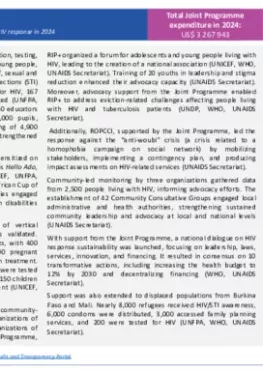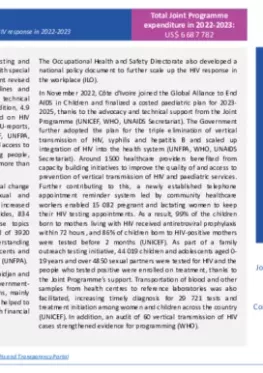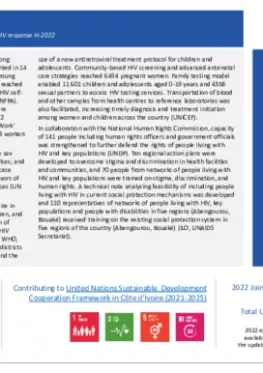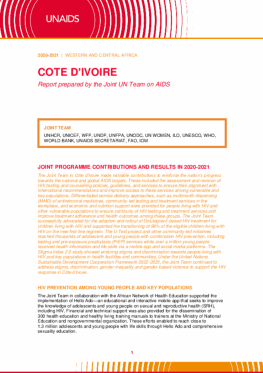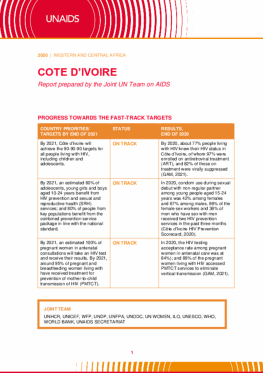|
Cote d'Ivoire
In 2024, Côte d’Ivoire expanded integrated HIV prevention, testing, and treatment services, focusing on adolescents and young people, with support from the Joint Programme. Integrated HIV, sexual and reproductive health (SRH), and sexually transmitted infections (STI) services reached 78,000 youth; 14,000 were tested for HIV, 167 accessed PrEP, and 113,000 condoms were distributed (UNFPA, UNESCO, UNICEF, UNAIDS Secretariat). Additionally, 850 educators were trained, supporting health education for 112,000 pupils, parents, and community members (UNESCO). Training of 4,900 healthcare providers and community actors further strengthened youth-focused services (UNFPA).
About 7.6 million adolescents and young people were sensitized on HIV and STI prevention through digital platforms such as Hello Ado, U-Reports, E-Santé, and À l’Assaut du Sida (UNICEF, UNFPA, UNESCO, UNAIDS Secretariat). In addition, during the African Cup of Nations, social networks and stadium outreach activities engaged 1.2 million young people, including 300 people with disabilities (UNFPA).
A certification system for the triple elimination of vertical transmission of HIV, syphilis, and hepatitis B was validated. Paediatric HIV response was accelerated in 10 districts, with 400 health workers trained. HIV testing reached 113,000 pregnant women, over 1,600 of whom tested positive and began treatment. Among 540 infants born to HIV-positive mothers, 91% were tested before two months—up from 78% in 2023. As a result, 150 children living with HIV were identified and started on treatment (UNICEF, WHO, UNAIDS Secretariat).


